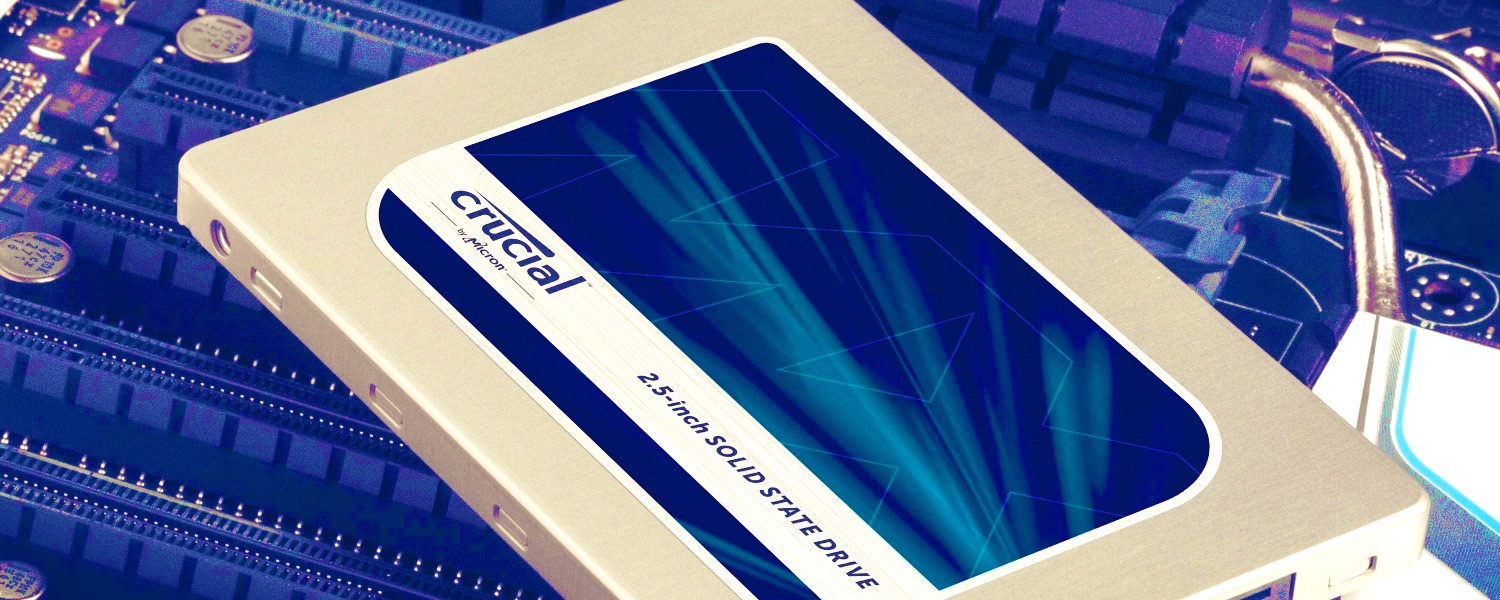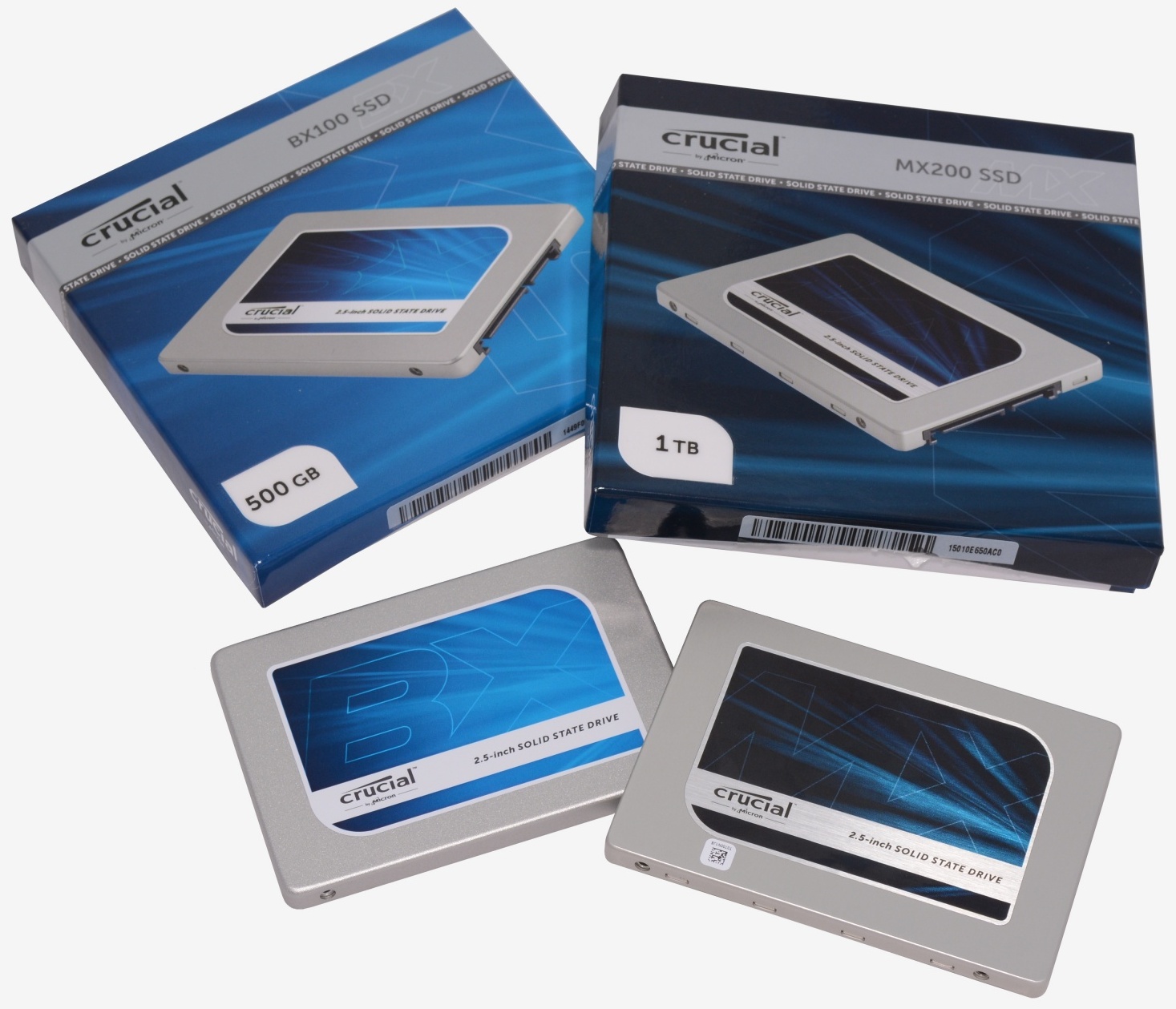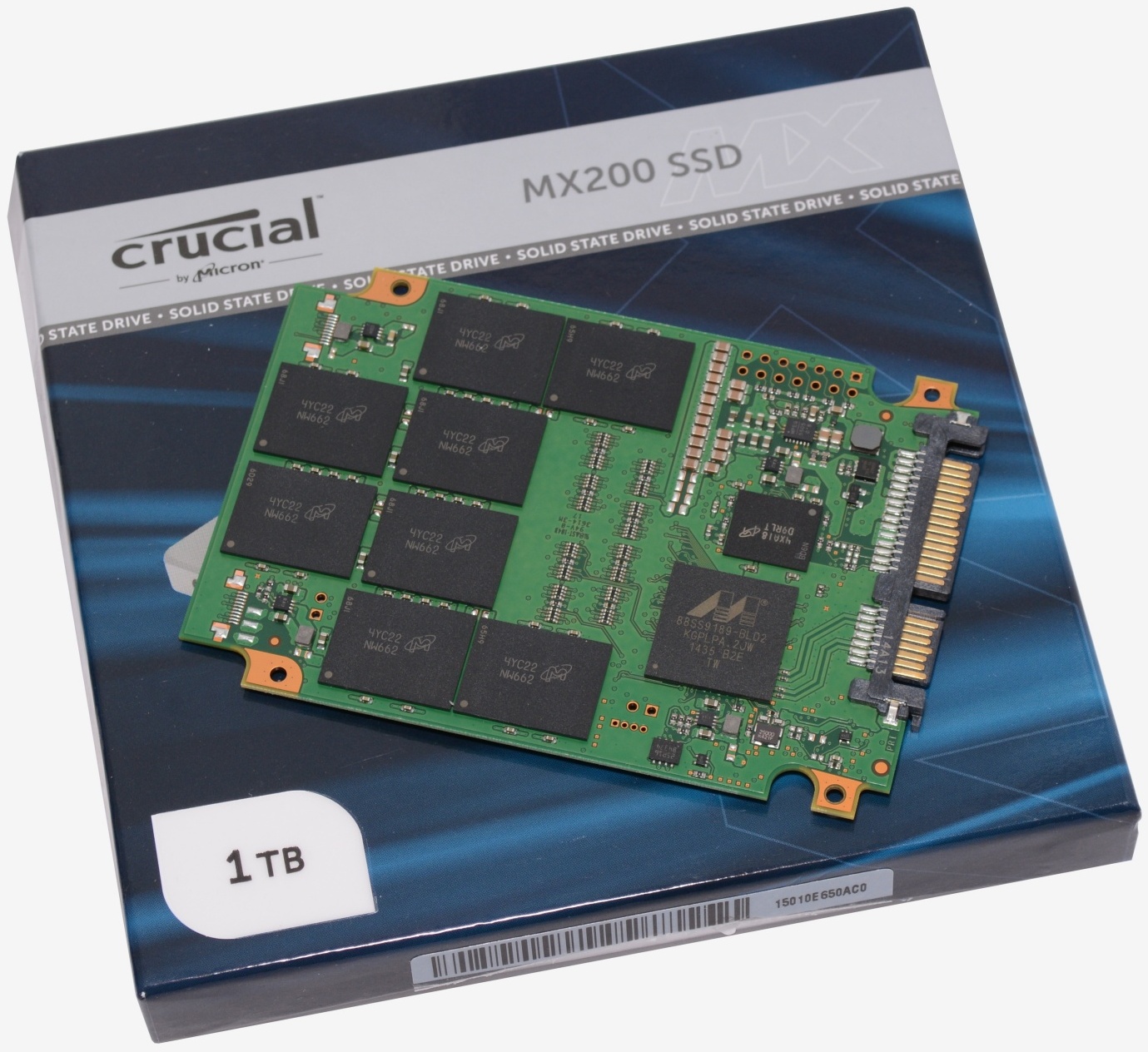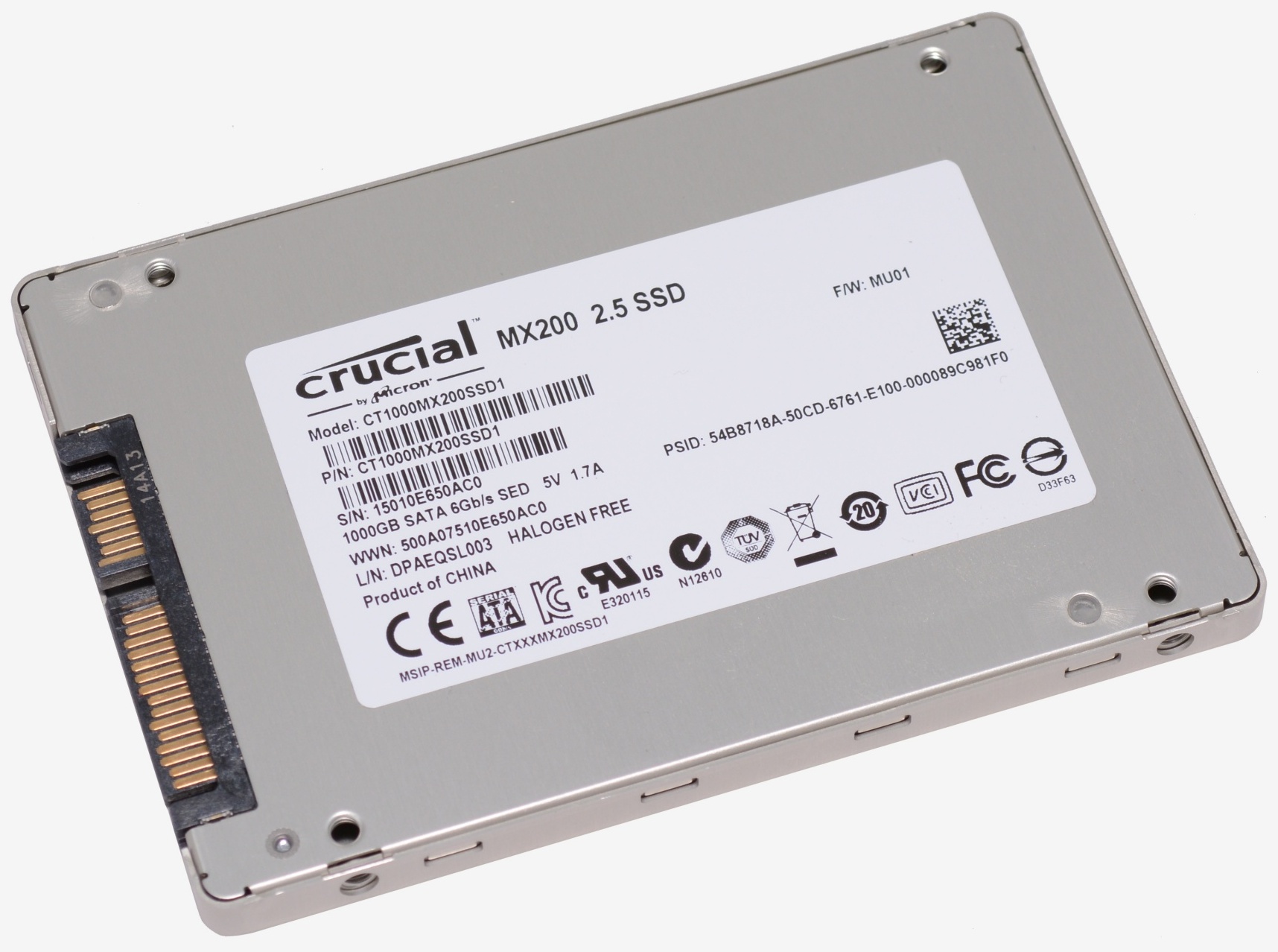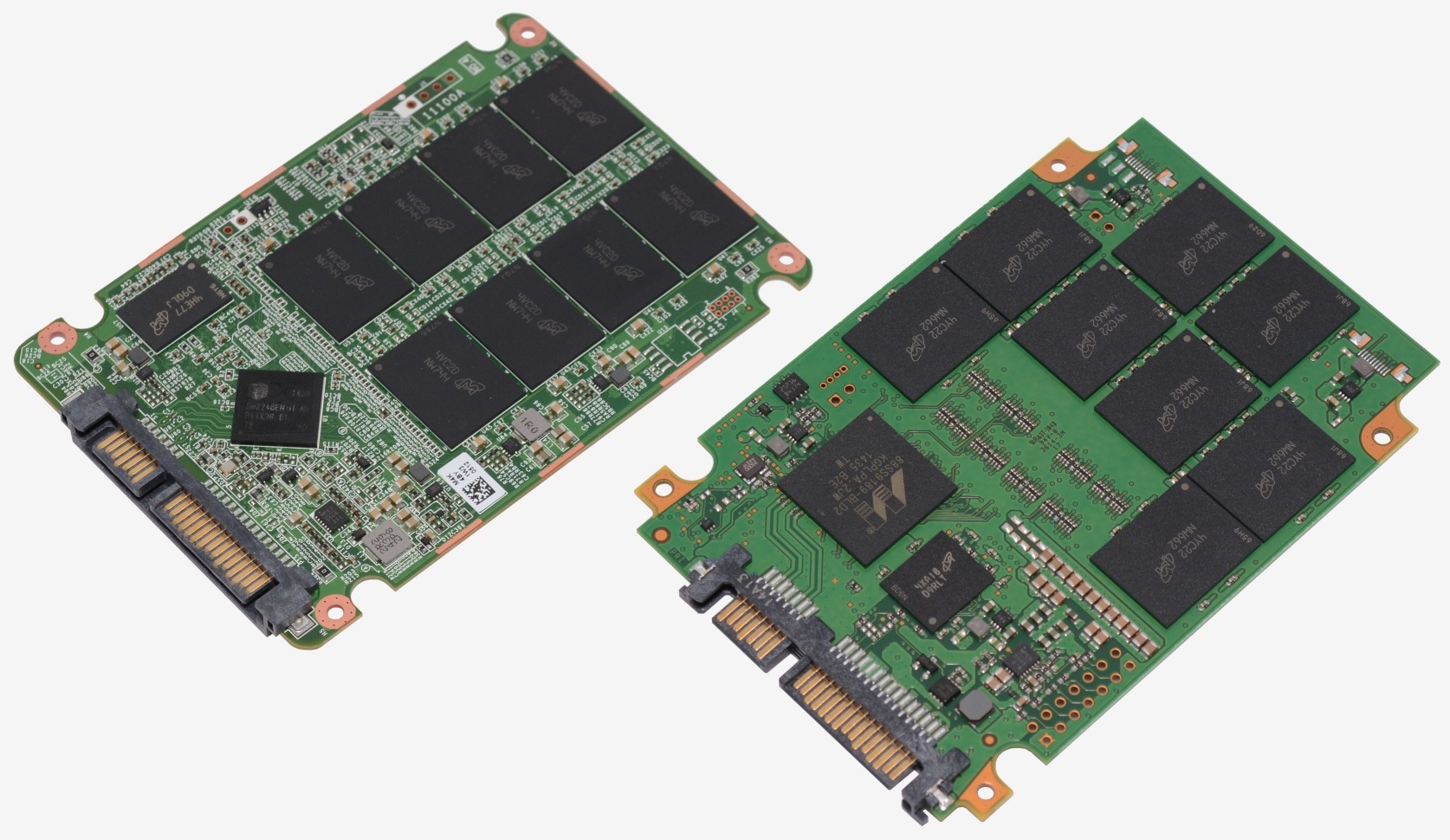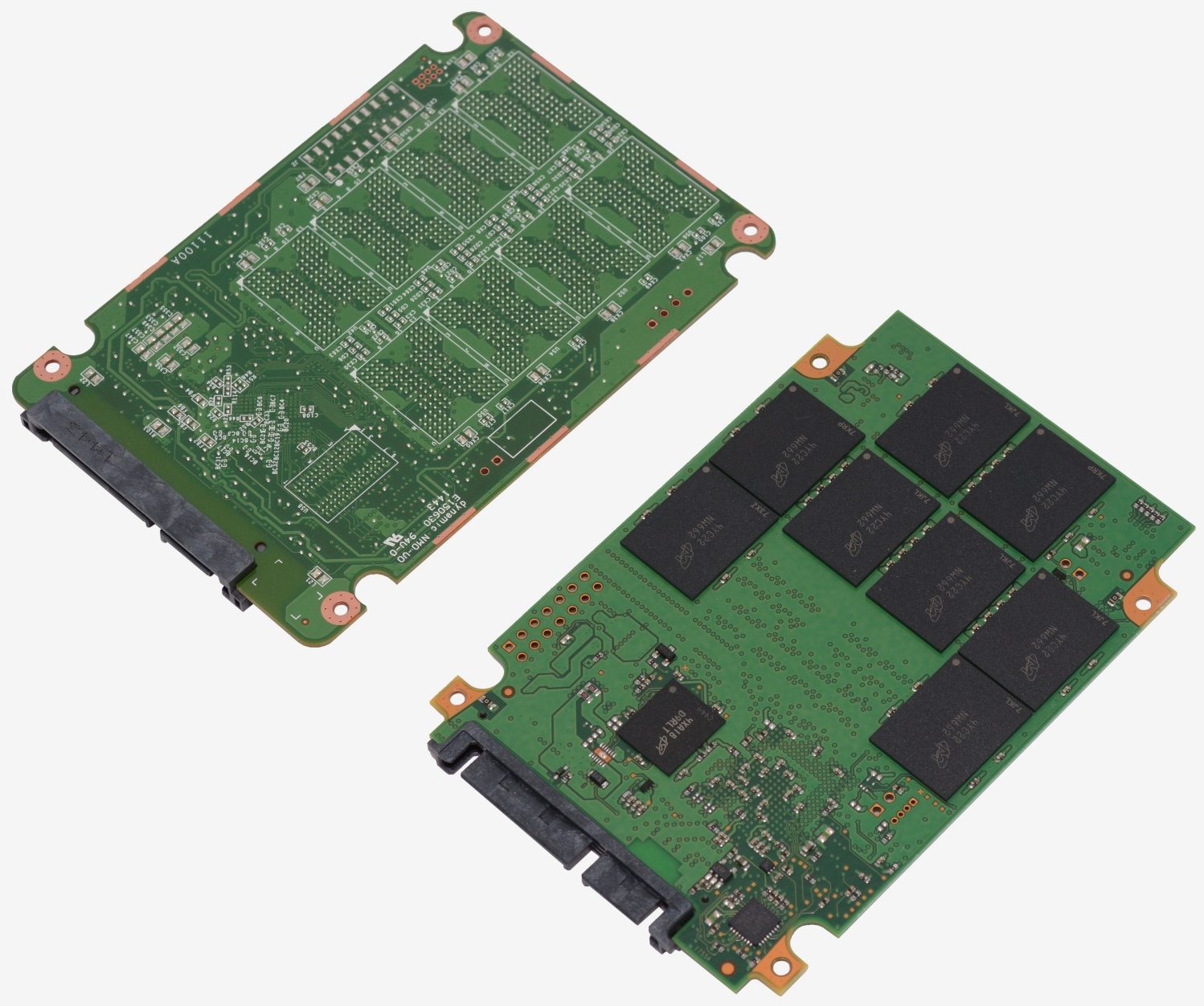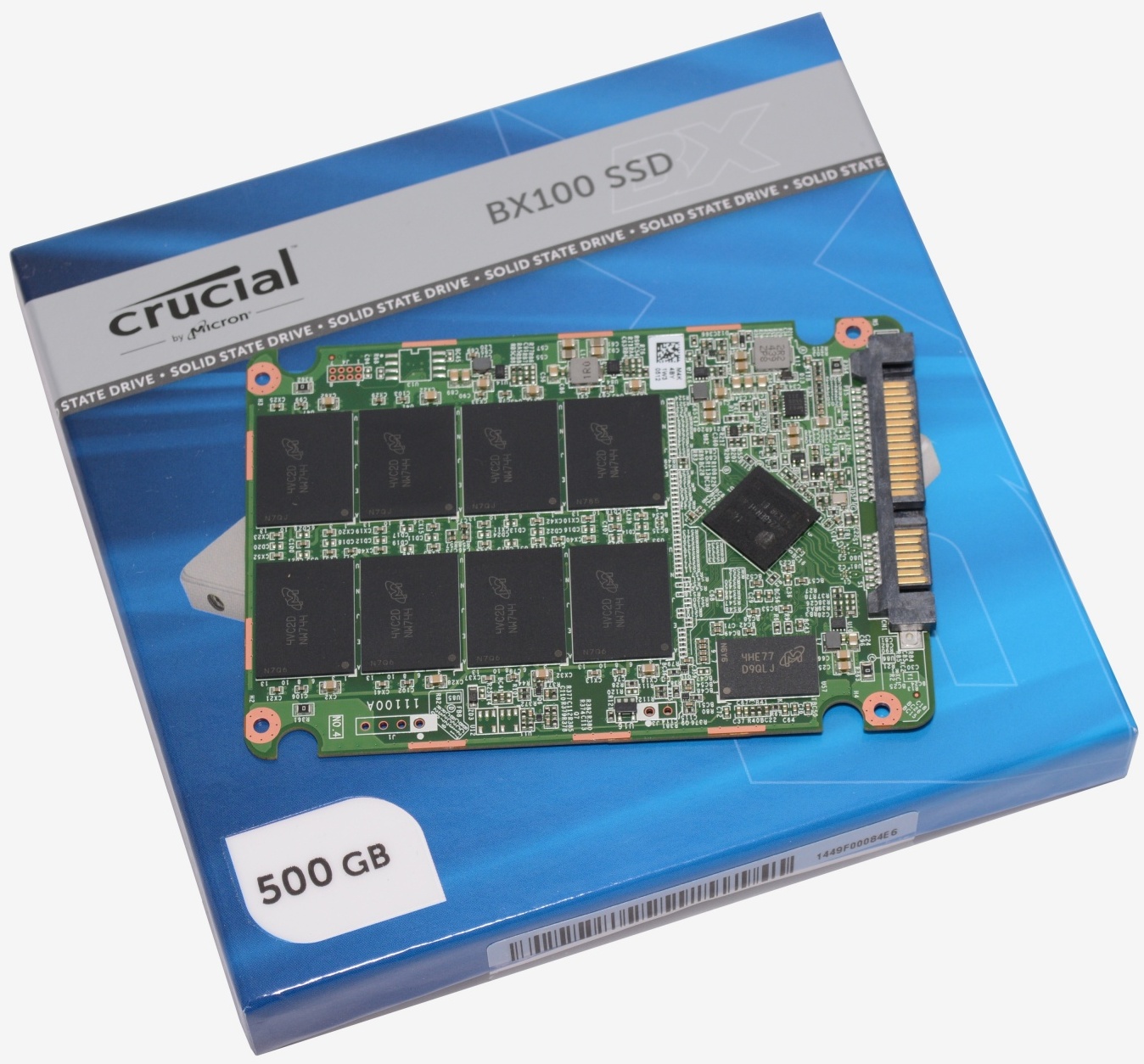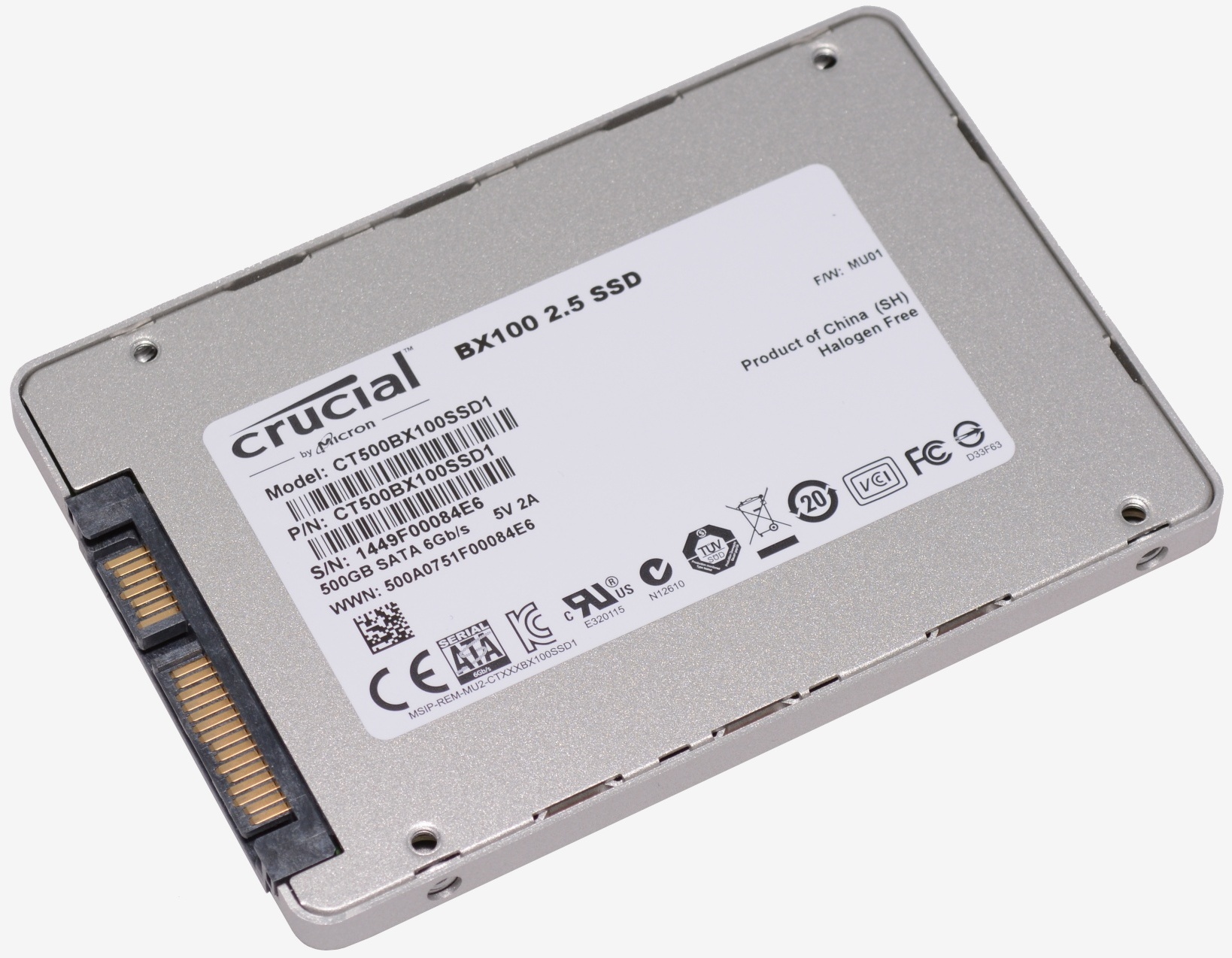Crucial has been a primary driving force of SSD technology since the early days, and for good reason: the company is owned by Micron, which together with Intel created IM Flash Technologies to produce NAND flash memory.
As one of the top five semiconductor makers, Micron is at the forefront of NAND flash technology, though unlike Samsung it doesn't make its own SSD controllers and has for the most part relied on Marvell to make the connection.
Crucial has had many hits and a few misses over the years. Generally speaking, the company's SSDs have been among the most reliable and best performing on the market, with last summer's MX100 being the company's greatest hit. At launch, the MX100 series cost as little as $0.42 per gigabyte, which was unheard of at the time.
Apart from being one of the most affordable SSDs, the MX100 was also quite fast and in time proved to be extremely reliable despite a few firmware bugs which were fixed along the way.
Despite being a phenomenal seller and still offering solid performance even by today's standards, Crucial saw fit to replace the MX100 series roughly six months after its release. Its successor would be appropriately named 'MX200' and along with that new series Crucial also introduced the even more affordable BX100 series.
Although Crucial SSDs have remained competitive over the past year, it was lacking in software tools, but not for long. Along with announcing the MX200 and BX100, Crucial also made a point of showing of its new SSD toolbox software called "Crucial Storage Executive."
This software lets you effortlessly update your SSD's firmware, monitor operating temperature and overall health, reset the encryption password and examine used storage space. The good news for existing Crucial users is that this software also supports the MX100, M550 and M500 series as well.
On today's menu is the beefy 1TB MX200 ($470) along with the 500GB BX100 ($190).
Crucial MX200 Series
The highly successful MX100 had only been besting the competition for six short months before the MX200 was announced, which is an abnormally short life-span, even for an SSD. However, while its name suggests the MX200 is a new generation product, it isn't particularly different from the MX100.
The MX200 is essentially a Crucial-branded version of Micron's M600, the drive that introduced Dynamic Write Acceleration (DWA) technology. As a result, the only real noteworthy change from the MX100 to the MX200 is the implementation of DWA. This technology can at any given time change the SSD's NAND array from MLC mode to SLC mode and back again. In essence, the cache of SLC NAND can change in size and location on the SSD depending on the nature of the data stream coming to the SSD and on the current fill state of the SSD.
Although we never tested the M600, we weren't impressed by the performance shown in results posted online at various publications. What's impressive is the drive's endurance as SLC is significantly more durable than MLC.
As a result, Crucial is rating the 250GB version at 80TB, 500GB at 160TB and 1TB at 320TB, which is a significant improvement over the 72TB that the MX100 offered.
With the exception of DWA everything else is much the same. The same Marvell 88SS9189 controller is being used in conjunction with Micron's 16nm 128Gbit NAND. Moreover, features such as DevSleep, TCG Opal 2.0 and eDrive encryption are all still present with nothing new here to speak of either.
Pricing seems to be an issue though, which is disappointing as we can only assume MX100 users were hoping for a faster and even cheaper option from the MX200 series. The 250GB model is fetching $120, $210 for the 500GB model and $470 for the 1TB model.
Granted that's only about $10 more than the MX100 series and roughly in line with the Samsung SSD 850 Evo series, but it's still not exactly record setting like the MX100 series was.
The good news is that pricing remains the same regardless of form factor. Like Samsung's 850 Evo series, the MX200 range not only comes in 2.5" SATA form but also mSATA and M.2 SATA. Unfortunately, there are no 1TB mSATA or M.2 drives at this point.
Crucial BX100 Series
The MX200 series might be a case of an old dog learning new tricks, which goes against the saying, but this isn't the case with Crucial's newest SSD series. Stepping in for the MX range the BX100 is now Crucial's new entry-level series. Whereas the M in MX stood for 'mainstream' the B in BX stands for... you guessed it, 'budget'.
Rather than call on Marvell once again, Crucial has gone with a rather unusual choice in Silicon Motion's 2246EN controller. This controller was announced back in late 2013 though since then we haven't seen it appear in any SSDs and to our understanding the BX100 is the first production SSD to feature the controller.
The controller might be new, but the BX100 borrows its NAND flash memory from the MX200 and MX100. You will find Micron's 16nm 128Gbit NAND on board though the chips are addressed exclusively in MLC mode.
The BX100 budget range forgoes all the M-class features, so DevSleep, TCG Opal 2.0 and eDrive encryption are all missing. Instead, the feature list reads like an early SSD as only run of the mill features such as TRIM support and active garbage collection exist. There are also no 'mini versions' so those hoping for a mSATA or M.2 BX100 drive are out of luck.
On paper, the read performance of the BX100 range maxes out at an impressive 535MB/s, which isn't far behind the 555MB/s of the MX200 drives. However, the write performance is lacking due to the missing SLC caching and this particularly hinders the smaller 120GB and 250GB models.
The 120GB model boasts a write throughput of just 185MB/s, though the 250GB model is considerably better at 370MB/s. Those investing in the 500GB or 1TB model can expect write speeds of up to 450MB/s, which isn't a far cry from the 500MB/s the MX200 drives are capable of.
Pricing-wise, the smaller 120GB and 250GB drives aren't that impressive. The 120GB model costs $0.58 per gigabyte and the 250GB model is $0.40 per gigabyte. Given that the MX100 series shipped for as little as $0.42 a gig almost nine months ago now, these prices are hardly exciting.
That said, the 500GB model for $190 ($0.38/GB) has certainly peaked our interest, as has the 1TB model for $380. Thankfully Crucial had the sense to send us the 500GB model for testing as we'd already written off the smaller 120GB and 250GB drives purely given the price and performance on paper.
